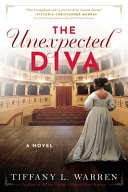
Members wanted! WPL's book clubs offer readers the opportunity to meet and discuss monthly selections from a wide variety of generes.

Looking for something to read, watch, or listen to? Let us know your preferred format and genre, and we’ll recommend five titles you’re likely to enjoy.
Email us at askus@waterloopubliclibrary.org
NoveList Plus is the premiere database of reading recommendations. It is a comprehensive source of information about books that includes expert recommendations, reviews, articles, lists, and more.






